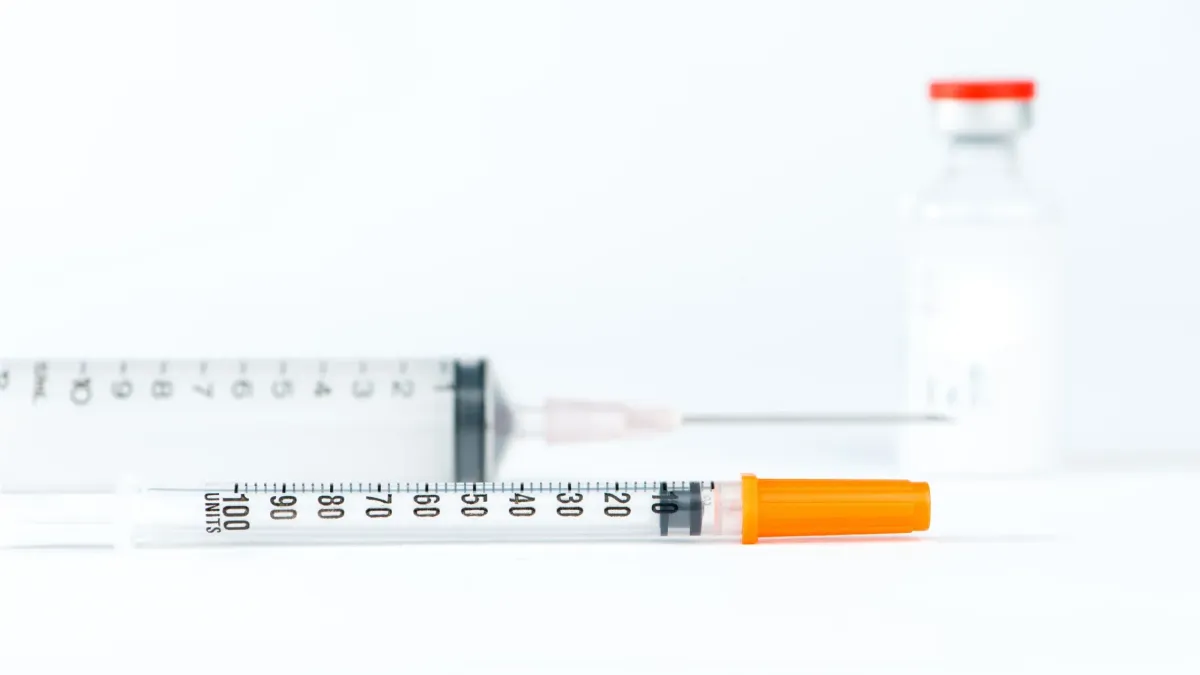Personalized Medicine from
Telehealth Provider EllieMD

Stefanie Raya Brand Partner
Explore my site and use the chat to ask me questions
Flexible telehealth provider offering free doctor appointments and free shipping for quality peptides supporting weight loss, longevity and sexual health. Products include semaglutide, tirzepatide, NAD+, semorelin, glutathione, PT-141, B-12, and synapsin.
No Hidden Fees
Free and Discrete Shipping
Option to enroll as an affiliate making commissions from sharing the company services with their network.
Works with multiple pharmacies to reduce or eliminate any lapse in medication.
Flexible payment program to include monthly payments accepting Google pay, Apple pay and company financing.
Personalized Medicine from
Telehealth Provider EllieMD

Stefanie Raya Brand Partner
Explore my site and use the chat to ask me questions
Flexible telehealth provider offering free doctor appointments and free shipping for quality peptides supporting weight loss, longevity and sexual health. Products include semaglutide, tirzepatide, NAD+, semorelin, glutathione, PT-141, B-12, and synapsin.

WHAT HAPPENS WHEN YOU STOP TAKING SEMAGLUTIDE OR TIRZEPATIDE?
If you're currently using semaglutide or tirzepatide to assist with your weight loss journey, you might wonder what happens if you decide to stop taking them. In this article, we'll explore the mechanics of these drugs, what to expect if you stop using them, and the steps to take for a safe transition once you've achieved your weight goal.
HOW SEMAGLUTIDE AND TIRZEPATIDE AID IN WEIGHT LOSS
To understand what happens when you stop taking semaglutide or tirzepatide, it's essential to know how they work in the body. Both medications belong to a class of drugs known as GLP-1 receptor agonists. This means that they mimic the actions of a natural hormone, glucagon-like peptide-1 (GLP-1), which plays a key role in managing blood sugar and hunger levels.
Tirzepatide goes a step further. Apart from being a GLP-1 receptor agonist, it's also a GIP receptor agonist. This means that in addition to mimicking GLP-1, tirzepatide simulates the effects of another hormone, GIP, which is involved in our energy metabolism and insulin release.
Using semaglutide or tirzepatide stimulates the GLP-1 receptors in your body, and in the case of tirzepatide, the GIP receptors as well. This leads to several beneficial effects, including reduced appetite, increased feelings of fullness, and improved blood sugar control. As a result, people typically experience weight loss while using these medications.
WILL STOPPING SEMAGLUTIDE OR TIRZEPATIDE LEAD TO WEIGHT GAIN?
A pressing question for many is whether halting the use of semaglutide or tirzepatide might cause the scales to tip back. It's important to note that semaglutide and tirzepatide can help you lose weight, but they are not a magic solution. Sustainable weight loss requires long-term lifestyle changes.
Stopping semaglutide or tirzepatide may lead to an increase in appetite, which could result in weight gain if not managed carefully. To maintain your weight loss, it's crucial to adjust your lifestyle, focusing on a balanced diet and regular physical activity. These habits will play a significant role in preventing weight regain once you've stopped taking the medication.
WILL I HAVE TO TAKE SEMAGLUTIDE OR TIRZEPATIDE FOREVER?
Whether you're using semaglutide or tirzepatide for weight management or for treating conditions like type 2 diabetes, it's crucial to consult your healthcare provider before considering discontinuation. For many on a weight management plan, the eventual goal is to phase out the use of semaglutide or tirzepatide. However, every individual's circumstances and health needs are unique, and abruptly stopping these medications can carry potential risks. Thus, any decision regarding their use should be made under medical guidance.
For those who have achieved their weight loss milestones, transitioning to a lower "maintenance" dose might be a consideration. This approach can provide ongoing support in weight management. Nevertheless, it's essential to tread this path under the expert eye of a medical professional. At Qyral, our board-certified physicians are well-equipped to offer guidance on such tailored strategies.
OTHER EFFECTS OF STOPPING SEMAGLUTIDE OR TIRZEPATIDE
When you stop taking semaglutide or tirzepatide, you may experience various effects. These can include:
Elevated Blood Sugar Levels: Without the medication's blood sugar-regulating effects, your glucose levels may rise, especially if you have diabetes.
Increase in Addictive Compulsions: Some individuals report an increase in addictive behaviors, so it's essential to be aware of these changes and seek support if needed.
Appetite May Increase: As mentioned earlier, your appetite might rebound, making it crucial to be vigilant about your eating habits.
Side Effects Relief: Any adverse side effects you experienced while on the medication, such as nausea, heartburn, or constipation, should subside.
HOW TO SAFELY STOP TAKING SEMAGLUTIDE OR TIRZEPATIDE
Unless you're experiencing severe side effects from taking semaglutide or tirzepatide, it's generally advisable to taper off the dose of your medications gradually. This approach allows you to have more control over your body's reaction and minimizes the risk of adverse effects.
Your Qyral telehealth physician can help you create a personalized plan for discontinuing these medications safely, including prescribing reduced doses to slowly transition you off of your medication. They may also provide guidance on managing any potential side effects or addressing changes in appetite.
Maintaining a Healthy Weight Without Medication
After coming off of a GLP-1 or GIP medication, it is important to maintain a healthy weight and lifestyle. To achieve this, continue practicing the healthy habits you've developed while on these medications:
Healthy Diet: Stick to a balanced diet rich in fruits, vegetables, lean proteins, and whole grains.
Regular Exercise: Incorporate physical activity into your daily routine to support weight management and overall well-being.
Mindful Eating: Be mindful of your eating habits and emotional triggers to prevent overeating, especially if your appetite increases once you discontinue your medication.
Stay Hydrated: Drink plenty of water, as proper hydration can help control appetite.
Qyral supports your journey toward healthy weight management by pairing prescription doses of semaglutide or tirzepatide, where appropriate, with guidance on how to eat better and lead a healthier lifestyle. By understanding the impact of diet and lifestyle on your overall health, Qyral gives you the knowledge you need to make changes that support holistic well-being naturally.
FINAL THOUGHTS
Stopping semaglutide or tirzepatide doesn't have to be a daunting prospect. With the right guidance and a commitment to maintaining a healthy lifestyle, you can successfully transition away from these medications while preserving your weight loss achievements and overall health. At Qyral, we’re here to support and guide you through every step of that journey.
